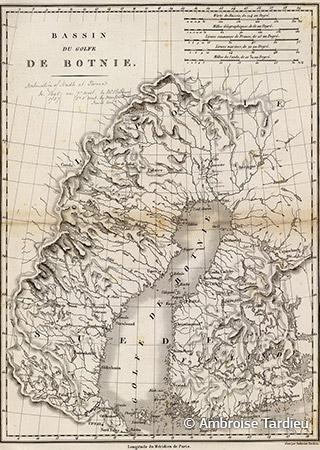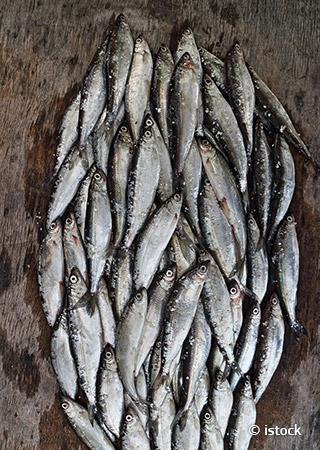
Kalix Löjrom PDO is produced from vendace roe. The fish is sourced from the waters of a specific part of the Gulf of Bothnia. The specific orange shade of the roe of Kalix Löjrom PDO distinguishes it from roe extracted from freshwater vandace, which is yellow.
Its rounded flavour, with its mild taste of smooth fish oil and salt, sets this Swedish speciality apart.
Origins
Kalix Löjrom PDO, or vendace roe, the eggs of the small salmonid fish species, gained the European protected designation of origin (PDO) status in 2010.

In terms of land, vandace used to produce Kalix Löjrom PDO are found in the area around the municipalities of Piteå, Luleå, Kalix and Haparanda. At sea, they are fished within the boundaries of waters stretching between the Torneå river estuary to the north and the Åby river estuary to the south and extending no more than 40 km from the coast. This specific part of the Gulf of Bothnia is a natural spawning ground for vandace. The entire preparation process of Kalix Löjrom has to take place in this delimited geographical area.

The features that characterise Kalix Löjrom PDO are its taste and its instantly recognisable shade of orange, which belongs to the colour scale S2070-450R according to the Swedish national colour scheme. The specific orange shade of the roe of Kalix Löjrom PDO distinguishes it from roe extracted from freshwater vandace, which is yellow.
Both its distinctive flavour and unique pigmentation have been found to be directly linked to the special feed of vandace. The cold and clean water in this particular part of the Gulf of Bothnia, where vandace spawn and stay during the catch period, is undoubtedly a determining factor too. With no less than eight large rivers and numerous smaller streams and watercourses flowing into this part of the Gulf of Bothnia, the water is of drinking quality.
The traditional production method of Kalix Löjrom PDO also accounts for its unrivalled reputation. Handling the roe is part of the local knowledge and requires many years’ experience. Kalix Löjrom’s rounded flavour, with its mild taste of smooth fish oil and salt, adds to its unique character.
Production

Kalix Löjrom PDO is produced from the roe of the vendace, also known as coregonus albula. The fish is sourced from a specific part of the Gulf of Bothnia. This natural environment makes all the difference to Kalix Löjrom PDO in terms of feed and catch area, which are both linked.
The vendace exclusively feeds on the natural resources provided by its environment. Being free from freshwater insects of any kind, these blessed waters supply the planktonic crustaceans and insect larvae that the vandace lives on. The size of the actual catch area varies according to the amount of fresh water that flows into it during the spring floods. An increase in fresh water supplies grants the vandace a larger feed area.
The entire preparation process of Kalix Löjrom PDO consists of several stages: preliminary rinsing, whisking, sieving, drying, salting and thorough cleaning. The size of the roe varies during the five-week fishing period, from 0,8 mm in week 1 to 1,3 mm in week 5. After Kalix Löjrom is extracted from the fish, a process carried out by hand on the day it is caught, 4 % salt is added to the roe.


Kalix Löjrom PDO is mainly sold frozen or defrosted. It is also made available fresh in smaller quantities during the catch period. The freeze-drying method sets the total water content of Kalix Löjrom PDO to 37,7 %. Its total salt content is 4,3 %. Whether frozen, defrosted or fresh, the characteristics of the product remain unaltered.
More information
Kalix Löjrom PDO – legal specifications

